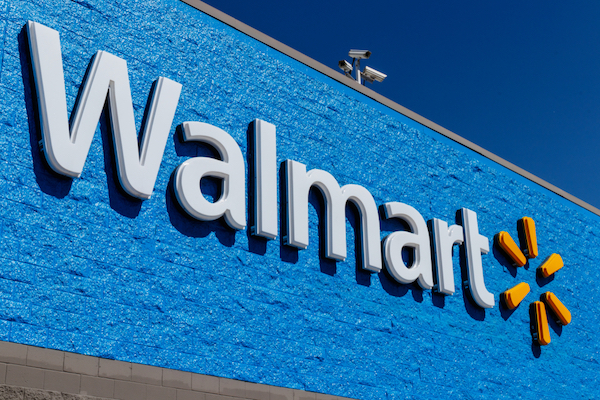[#title_feedzy_rewrite]
![[#title_feedzy_rewrite]](https://postcryptocoins.com/wp-content/uploads/2025/06/walmart-coinstar-coinme-bitcoin-7UxHGG.jpg)
Amazon and Walmart are both exploring the launch of their own stablecoins as these retail giants seek ways…
Amazon and Walmart are both exploring the launch of their own stablecoins as these retail giants seek ways to reduce transaction fees and also bypass traditional banking systems entirely. Both companies have been having discussions about plans to issue their own digital currencies, which could fundamentally reshape how merchants handle payments right now. This push toward better stablecoin regulation and increased merchant crypto adoption represents a major shift that could help companies reduce transaction fees while enabling businesses to bypass traditional banking.
JUST IN: Amazon & Walmart explore launching their own stablecoins, WSJ reports.
— Watcher.Guru (@WatcherGuru) June 13, 2025
Also Read: Trump: US Has Bitcoin Reserve, ‘Not Done Yet’ With Crypto Push
Corporate Giants Eye Payment Revolution

Right now, Amazon and Walmart stablecoin discussions are taking place at the highest levels of both companies. Walmart and also Amazon have recently explored whether to issue their own stablecoins in the US, according to people familiar with the matter. And it’s not just these two major retailers – Expedia Group and other large companies like airlines have also discussed potential stablecoin efforts.
A move to launch a payments system by these retailers that bypasses traditional payment systems would send shivers through the nation’s banks. With their vast customer networks and also lighter regulations, retail companies pose particular threats to traditional banking institutions.
These stablecoins from Amazon and Walmart would function like existing digital currencies – maintaining a one-to-one exchange ratio with dollars and backed by cash reserves or Treasury bonds.
The Fee Problem Driving Change
Stablecoin regulation could unlock massive savings for merchants right now. These digital currencies allow companies to circumvent traditional payment rails, which cost billions annually in fees. The interchange fees merchants pay when customers use cards represent a significant expense that stablecoins could eliminate.
Current payment systems also create settlement delays, meaning merchants wait days to receive sales proceeds. Stablecoins offer quicker processing, particularly valuable for merchants with international suppliers.
Amazon’s efforts are still in the early stages, with discussions centered on having the company’s own coin for online purchases. The companies have also weighed using outside stablecoins through merchant consortiums.
Merchants have long tried launching payment alternatives to bypass the Visa and Mastercard-dominated system, though most failed to gain traction.
Regulatory Framework Determines Timeline
The retailers’ final decisions depend on the Genius Act, which would establish a proper stablecoin regulation framework. This bill recently passed another procedural hurdle but still needs Senate and House approval.
Merchant trade groups have been meeting with lawmakers to push for passage. The Merchants Payments Coalition argues that proper stablecoin regulation would enable alternative payments that significantly lower expenses and also create competition against card networks.
Walmart has lobbied for adding amendments that would introduce more credit-card sector competition to the Genius legislation.
Implementation Challenges Ahead
Despite potential benefits, skepticism remains about stablecoin security and also regulatory implications. Amazon and Walmart’s stablecoin initiative faces questions about digital asset involvement at the time of writing.
Companies are exploring consortium approaches where multiple merchants work under one stablecoin issuer. This could help reduce transaction fees while sharing implementation costs and risks.
Megabanks have been considering their own stablecoin consortium, suggesting traditional institutions recognize both the threat and also opportunity these digital currencies represent.
Also Read: Amazon (AMZN): Billionaire Bill Ackman Buys In On The Stock; Should You?
Walmart’s financial services interest isn’t new – the retailer has long sought to leverage its customer network. It has expanded through its fintech unit, though it previously withdrew an industrial loan company charter application after opposition.
The merchant crypto adoption timeline remains unclear as companies await regulatory clarity. The Genius Act’s passage would provide the legal framework needed for confident implementation of systems designed to bypass traditional banking and also reduce transaction fees significantly.

